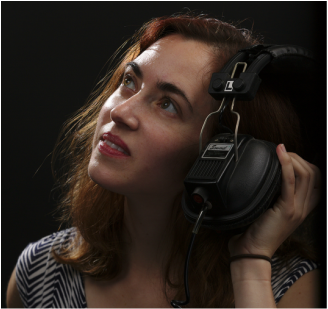|
Here's the thing, the English version of Ed Sheeran's song "Thinking Out Loud" has 926,011,158 views ( as of 12:10 Mountain time Jan 13, 2016). That is a lot of views. I would guess that means that lots of people like the song and probably Ed Sheeran himself. So it is a big deal when someone like him, who is successful in the dominant culture takes the time not just to approve a minority language cover but to sing it himself. For one thing it may well help many people find out about the Irish language and it will certainly help many people to see Irish as a worth while language. After all Ed has 14,091,891 likes on Facebook where as we here at Daily Gaelic are working our way up to 4,000 so he has a bit of a bigger reach. I'm not in any way saying that traditional music or any other part of Gaelic culture isn't a valid thing to preserve and treasure or that these things aren't good ways for people to get interested in the language. Some people however will never come into contact with these things and/or they may just not be interested in them. But some of those people might be Ed Sheeran fans and may become interested in learning Irish Gaelic because of the song. Along similar but different lines not everyone who speaks or is learning Irish is going to be really into traditional music at least not all the time. I have to admit to having days where all I want to listen to is pop music. Things like Ed Sheeran singing his hit song in Irish and all the great covers and original songs that TG Lurgan and Seo linn have done means I can listen to Irish language pop. From looking at some of the comments on the web it seems like these pop songs are really popular with younger Irish learners. Honestly I am very jealous that we don't have more of this Scottish Gaelic. And ideally it wouldn't just be pop music. I'd love to see people using Irish and Scottish Gaelic to express themselves in every genre of music.
0 Comments
When learning any new language, there can be some frustration when you try to listen to and understand native speakers. There are a few reasons for this. The first and biggest reason is lazy pronunciation and slang. Native speakers of a language tend to be much less precise in the way they say and even use words often without noticing that they are doing it. Have a look at this video of a British man talking about just this with his dialect of English. This happens with Gaelic too. Just think of all the times 'agus' is reduced to 's. This also brings us to the second main reason words may not sound they way you learned them: regional dialects. Gaelic has lots of them. Some times they say the same word differently from the way you learned, sometimes they may even use a different word. Here is a great set of maps to help show some of these dialectical differences Scottish Gaelic Dialect Survey Another good way of getting a handle on dialect differences is to hear them. Listen to BBC Radio Nan Gaidheal, look at some of the videos on e-Stòras and Guthan nan Eilean check out some you tube videos ( try putting Nova Scotia Gaelic in the search box) and keep looking around on-line as there is new stuff all the time.  Do you lament the sad state of Gaelic and worry about its future? I'm sure this sort of mood strikes everyone who loves a minority language from time to time. How can these beautiful languages persevere in the face of such an overwhelming on slot of English? I certainly am guilty of these thoughts some times. However, today I had a change of perspective. I was updating some pictures on the website and searching for some that would be just right. This can be somewhat of a long process because it is tricky to know what key word might bring up the image I am looking for. The thing that struck me as I searched was that when I put the word 'Alba' in the search bar, I got (mostly) pictures of Scotland. Some vague memory stirred of trying this a few years ago and getting mostly not pictures of Scotland. Seeing buzzfeed articles about Scottish Gaelic, being able to change the language setting in a lot of my computer programs to Gaelic ( Check out iGàidhlig for a good list of these), having on-line dictionaries and tones of Gaelic on You Tube, these all speak to me of a wider knowledge of Gaelic. They make me optimistic about Gaelic. It so much more accessible and findable, even by accident, than it was 10 years ago. I really feel that if those of us who love the language keep using and creating this content then the presence of Gaelic both on and off line will grow and the language will flourish. For 2016 I wish you all this change of perspective, take heart, enjoy what is out there and create new things when you can't find what you need. |
Details
AuthorsCaroline has been involved with Gaelic for more than 18 years. She has degrees in Celtic Studies and Gaelic Medium Teaching. Archives
March 2021
Categories
All
|
Proudly powered by Weebly



 RSS Feed
RSS Feed